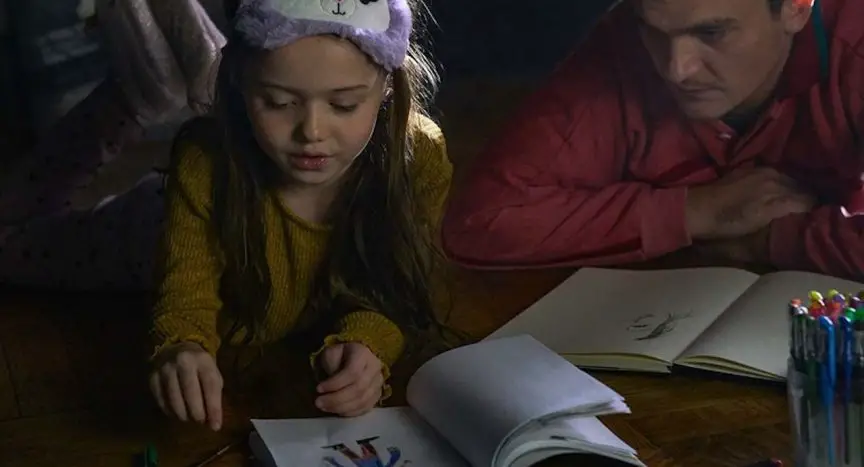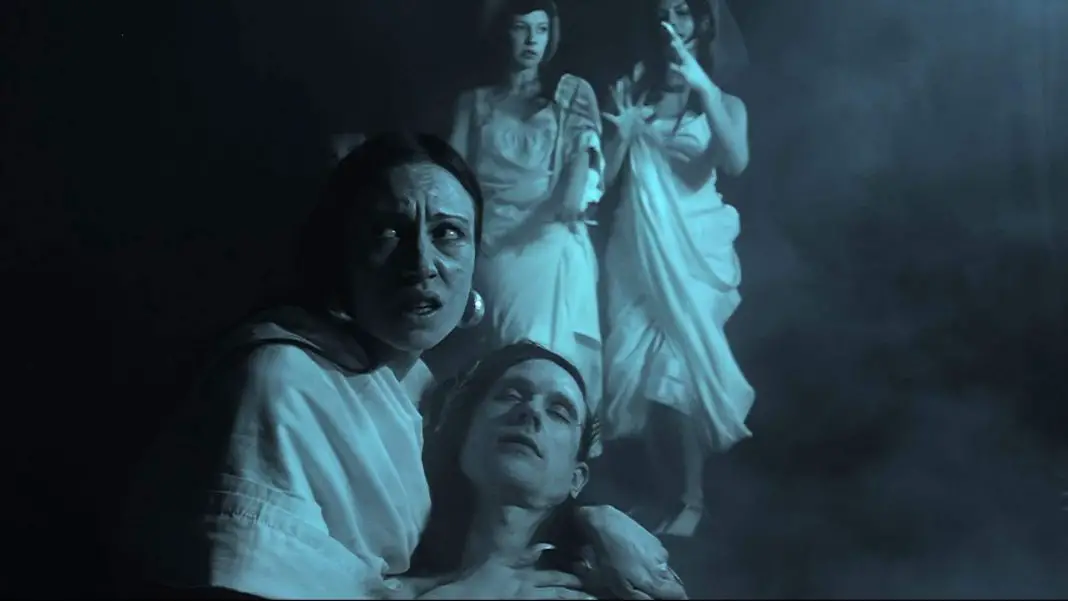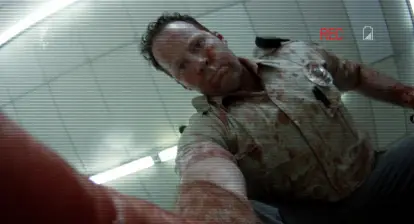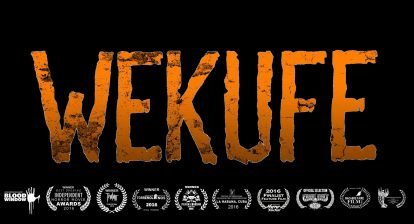Director William Brent Bell brought a wealth of personal experience and interest to his latest project, Separation. Wicked Horror sat down with him to discuss his involvement with the film. He was a pleasure to talk to, and gave much insight on the heart behind the film, the casting process, and why horror appeals to so many viewers.
WICKED HORROR: Congratulations on the upcoming release of Separation. I found it to be an emotional and chilling film. I think it’s going to resonate with a lot of viewers. I’m curious to know how you became involved with the project. What drew you to it?
BRENT BELL: I was in a TV meeting, and television executive Gloria Phan had developed this script, but no longer could be involved. She said, “You might like it. Did you like Kramer vs. Kramer?” And for me, I was like, “Oh my God, I love that movie so much.” And it’s very much my life. I was very affected by that movie when I saw that as a kid. I was the kid’s age, like eight years old, and my parents went through a bitter divorce. And it ended up my dad had to kind of take over the parenting, and he didn’t really know what he was doing. And my mother went to kind of find herself and it’s all good now. But then she [Gloria] said, “Except the mother dies, and comes back.” And I was like, “Ah, that’s great.”
So I tracked down the script, and I was expecting that no matter what shape it was in, I was gonna work on it to make it, because I felt like I knew the movie. Then I was really pleasantly surprised that the backdrop of the movie, not only was in Brooklyn, but it was the comic book world. I was like, “Oh, that’s nice. I like that.” So yes, it was very, very personal— and very much a project that I feel really kind of fortunate that I got to tell the story and shape the movie to be about the kind of struggles and pain that a family goes through during a divorce, during custody battle, during loss, and how important it is to be careful around the children as to what you say. Kids hear everything. So, it became very much about that, about how the parents were not grown up enough or they didn’t take seriously how important it is to be a good role model for your child.
WICKED HORROR: I’m sure that personal connection helps with the direction, and that goes into my next question. With some of your previous work, like The Devil Inside, you wrote and directed the film. How does the experience differ when you’re directing another person’s story, versus something that you’ve written as well?
BRENT BELL: You know, I was really, really involved—as far as this movie, during the rewrites for the script. So after getting that first draft, we worked on the script for six months, a year. And then we were doing a lot of work on it, even as the actors came on board. And in the world of Jeff, like his world of the Grisly Kin, all that stuff wasn’t in the script. That is a world that was mine that I brought into the story. So he was a comic artist, but there was no specificity really, in the story as to what he did and what his past was. So all that stuff felt very familiar with shaping the personal story. The creative end of it and the puppets, the drawings, the scary stuff— was very much developed with me. So it didn’t feel that different.
WICKED HORROR: There was a solid cast involved, and they all had to give rather emotional performances. I especially took note of Violet McGraw as a young actor in the role of Jenny. What was it like working with all of them? Did you have a hand in the casting process?
BRENT BELL: You know, I kind of chose the cast, if you will. I think Rupert was the first one, that I knew from Homeland. Speaking to him, and seeing his passion for this character and how he wanted to approach it was super exciting. Approaching it as a kind of adult who treats your daughter more like a friend. And, of course, he’s from England. So he has this accent that he doesn’t use for the story. It was really fun to see his process for that.
For me finding Jenny was the hardest part. I felt like I saw everybody who was anyone, and I really got to the point where I was like, Okay, we have to rewrite the character and make her do less, because it’s going to be impossible. She has to do so much in the story. She has to be happy, to be sad, be scared, she has to be the adult, and be funny. Then I saw Violet’s audition, and it was amazing. Just took the whole weight of the world off of me. She’s just so insightful and amazing the way she works.
Mamie was my first choice, and I didn’t think she want to do it, because, in a way, her role, for me, mirrored her mother’s role in Kramer vs. Kramer. Her people called us and said that she was really interested in the project. So that was amazing. Speaking to her about her mother’s performance in Kramer vs. Kramer and how she wanted to approach it differently—that was pretty surreal.
The writers actually had Brian Cox in mind when they wrote it. I didn’t know that, and then, when we first talked about Rivers, my first choice was Brian Cox. It was like, “Yeah, let’s do it.” He’s incredible. It was like, “Are you kidding? He’s gonna do it? This is great.” Then with Samantha, I was already such a fan of Madeline’s role in The Handmaid’s Tale— that crazy character she plays. For me, I was like, if we can get her to read the script and if I can talk to her, you know, the characters are more “normal”. This was a pretty small movie, an independent film. So with that cast we fell so fortunate. Simon Quarterman has been in two of my films, and he’s one of my dearest friends. Everybody loved the idea of him playing Alan, so calling him and getting him on board was really fun, because I just love working with him.
WICKED HORROR: What inspired you to get involved in filmmaking? Have you always been a fan of the horror genre yourself?
BRENT BELL: Yeah, I mean, as a kid, my sister showed me a lot of scary stuff, like Halloween, Trilogy of Terror, and When a Stranger Calls. I realized that there are a lot of babysitters stories that affected me as a kid, watching these movies happen to teenagers. When I was a kid I had a really active imagination. My parents were divorced, so that’s also kind of what we did on the weekend with my mom, was go see scary movies.
Growing up I didn’t really expect or plan to be making films. I always wanted to, I just didn’t think it was a reality. When I finished college, I just decided I wanted to come out here and try and get into this business, and at that time I was writing. And Idid it. And I tried to learn everything I could while I was writing. But looking back, it’s the only thing I’ve ever wanted to do.
WICKED HORROR: Yeah, I’ve been a horror fan since I was young. I think the first one I saw was Pet Sematary when I was eight, and I wasn’t really supposed to be watching it— I was peeking around the corner. But that’s still one of my favorites. I see it different as an adult now. I think also because I’ve read the book. But I like the way that horror lets us safely explore fears, but also complex emotions, such as grief. I feel like that’s a huge part of most stories that I like. So I’m drawn to films that mix those horrors of humanity with supernatural elements, and I feel like Separation kind of fit into that category. Do you have any other thoughts on that? Why do you think viewers are drawn to the genre?
BRENT BELL: This quote, might not be exactly right, but Stephen King says, “We create horrors to deal with the real ones”. For me, that’s what I become attracted to. It’s so much part of the human experience, kind of a scary story. Personally, it’s more creative. It allows for heartfelt stories or, like you said, stories of loss or grief, to be wrapped up in and kind of have fun with horror. Something like The Devil Inside— you know, it’s the story of a daughter, in search of meeting her mother for the first time after learning what she’d done. That’s very much what drew people to it, even when we did market research, you know—not all the other things about the story. It was the personal connection. So for me, that’s always the most important thing.
Even with something like The Boy, the way people have reacted to the story of Greta and the guy in the walls, Brahms. The connection people have to those two people, and the doll. It’s so bizarre, but I’m not surprised. I relate, but it’s fascinating.
WICKED HORROR: Is there any specific message that you were hoping viewers take away from this film?
BRENT BELL: You know, like I said, it’s just being being careful around your children, and being careful with their feelings. Because even if they’re quiet or turn inward, they’re still going through the same things that adults are still experiencing. And it really has a lasting effect on them.




